Intel Core i9-13900K and i5-13600K Review: Raptor Lake Brings More Bite
by Gavin Bonshor on October 20, 2022 9:00 AM ESTGaming Performance: 1440p
In our Ryzen 7000 series review, we saw users commenting about testing games for CPU reviews at 1440p, so we have duly obliged here. Those interested in 1440p performance with minimal image quality – particularly the esports crowd – will be glad to know that we will be testing at this resolution going forward into 2023 and beyond.
Civilization VI
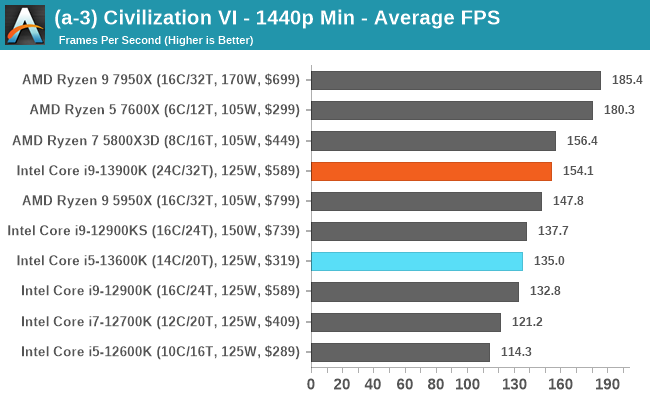
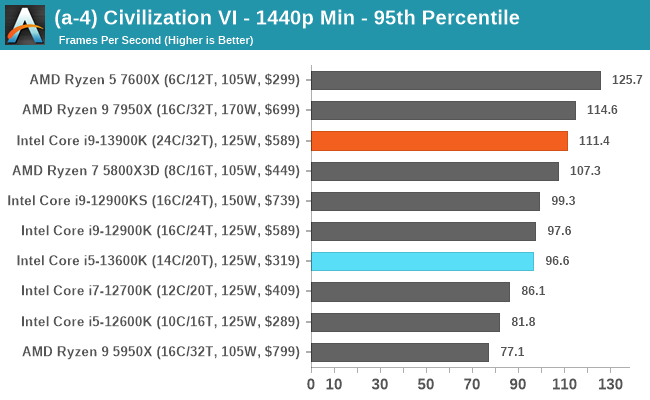
Borderlands 3
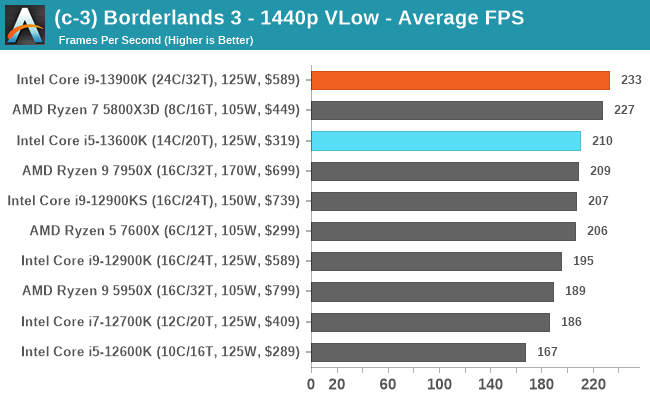
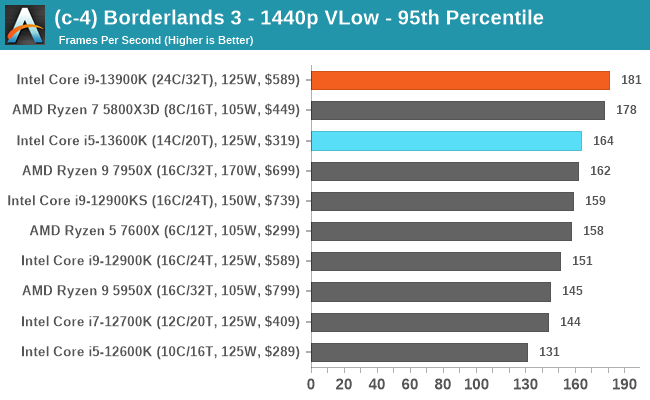
Grand Theft Auto V
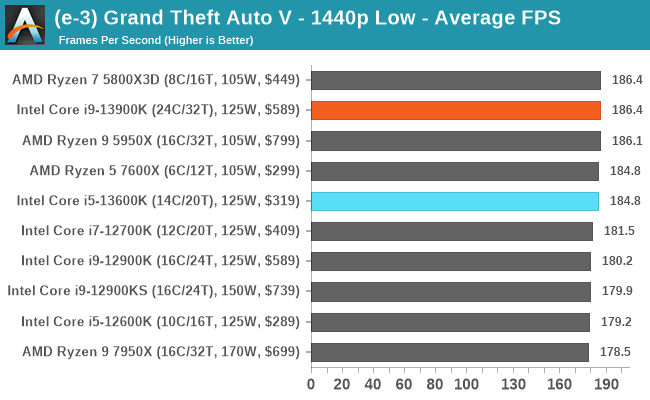
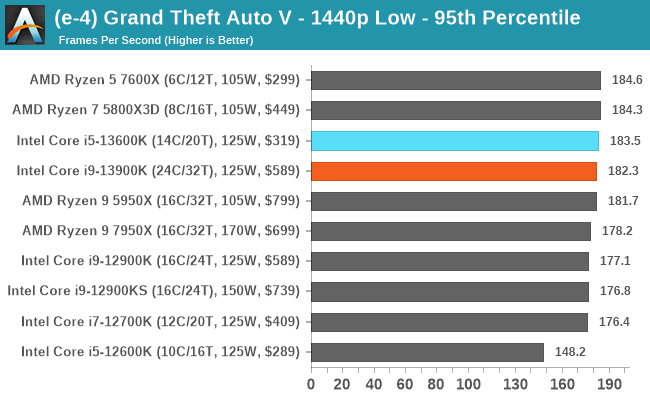
Red Dead Redemption 2
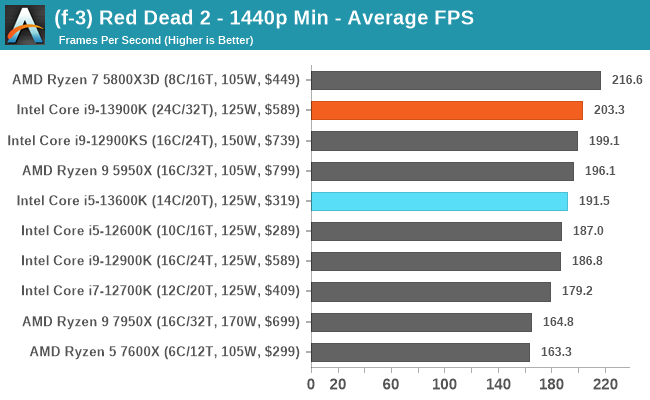
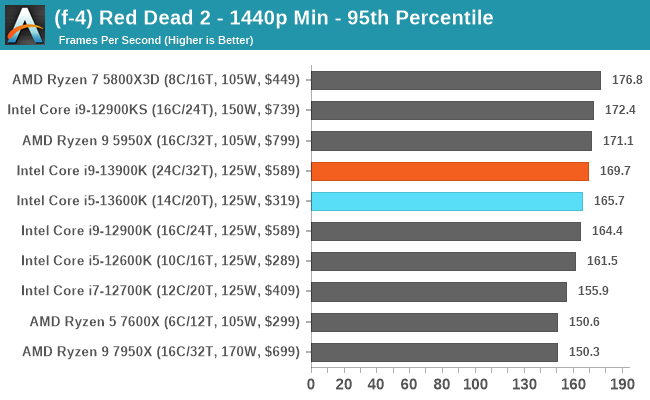
F1 2022
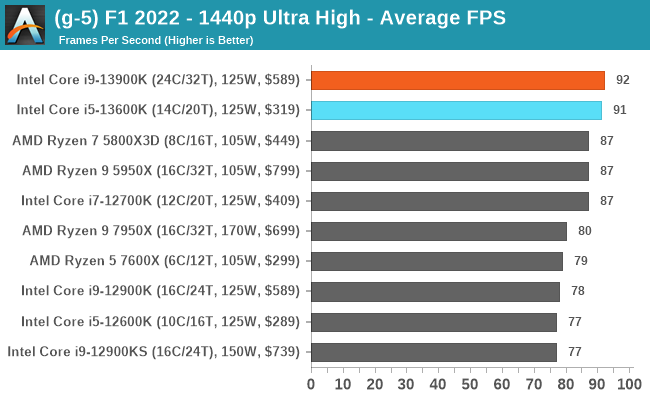
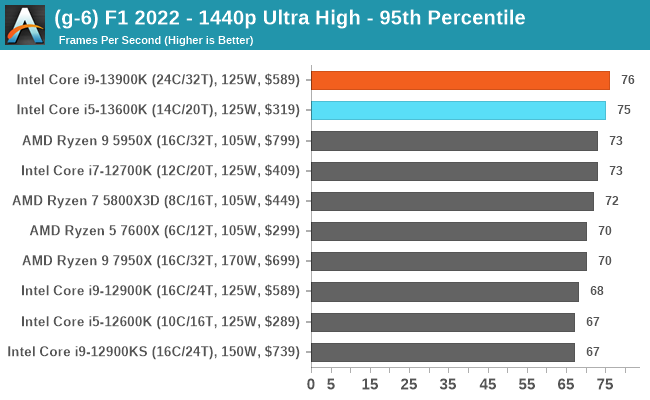
Hitman 3
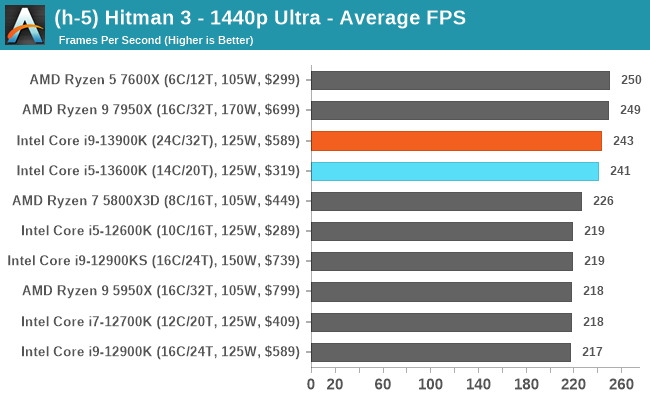
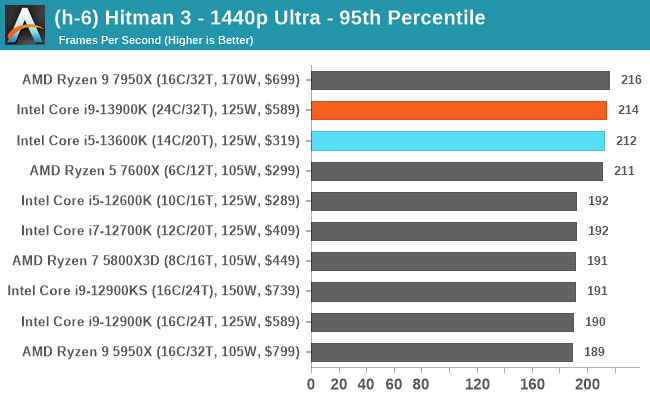
Total War: Warhammer 3
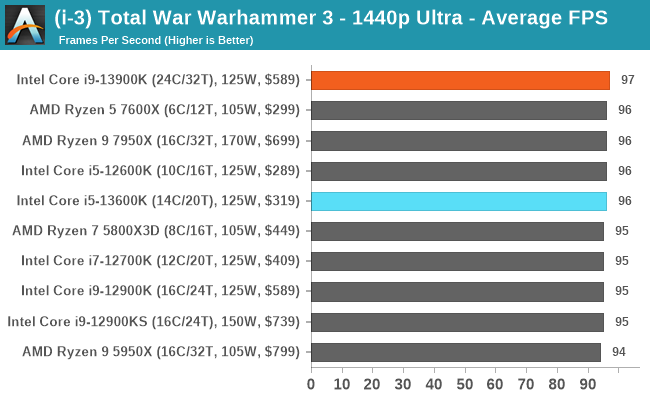
We noticed some discrepancies in our Cyberpunk 2077 testing at 1440p and 4K; we will publish these results once we identify the issue.
The first thing to note in our 1440p testing is that in Civ VI, and throughout, we've seen dominance from AMD's Zen 4 core here. I've retested numerous times to confirm, and they are correct. It's also worth noting that again, the Ryzen 7 5800X3D performs well in some of the titles, especially Red Dead Redemption 2, Grand Theft Auto V, and in Borderlands 3. If a title can utilize all of that 3D V-Cache, then the 5800X3D excels, even against the latest and great Zen 4 and Raptor Lake chips.
Throughout our 1440p testing, the latest Intel 13th Generation core has performed well, and although it gets pipped by the Core i9-12900KS in some of the tests, most of the processors are competitive in titles such as F1 2022, and Grand Theft Auto V.










169 Comments
View All Comments
Castillan - Thursday, October 20, 2022 - link
It never ceases to amaze me how Intel gets away with marketing a 330W+ CPU as a 125W CPU ReplyHulk - Thursday, October 20, 2022 - link
It's kind of like how you can drive a car rated at 32mpg EPA mileage and have it return 18mpg. Replyboozed - Thursday, October 20, 2022 - link
It's probably more like the modern turbocharged cars in which no real driver can reach the quoted fuel consumption because the manufacturer cheesed the economy testing. Replyabhaxus - Saturday, October 22, 2022 - link
Dunno what you mean, I regularly exceed the rated fuel economy for my car (twin turbo V8) as well as rental cars with turbo engines. All it takes is only going on boost when you actually want to go fast. Replyboozed - Saturday, October 22, 2022 - link
One of the car magazines in Australia consistently had trouble with small European turbo engines using up to twice as much as quoted even when not being pushed hard. BMW was the worst offender. Replymaxijazz - Friday, November 4, 2022 - link
Define "not being pushed hard". ReplyYojimbo - Thursday, October 20, 2022 - link
TDP has a technical meaning and Intel (and AMD, because they do they dame thing) are using it properly.Intel is even moving away from calling it "TDP" because of consumer, and hardware review sites/channels, misunderstanding of the term.
In order to understand the situation, go search the anandtech article where Ian Cutress actually suggests Intel do exactly what it is doing to cut down on confusion. Reply
yh125d - Thursday, October 20, 2022 - link
It has a technical meaning, but that meaning is not important to consumers/enthusiasts using the machine. It's misleading at best ReplyYojimbo - Thursday, October 20, 2022 - link
it's not misleading at all. people are just uneducated. Replyyh125d - Thursday, October 20, 2022 - link
That's absolutely asinine and completely incorrect. 125w TDP can lead people to think that the processor uses around 125w, or is limited to 125w, or that they should plan on cooling around 125w, that they should plan for a PSU load in the 125w range, or that the performance quoted by Intel is produced at around 125w. Because that's what Intel says TDP means. None of these are even a little bit correct. It is entirely misleading, and a completely useless number for consumers. Since AMD's TDP is more accurate (though still off) compared to Intel's, you can't even count on it to indicate which processor might use more power than another. 7950X @ 170w TDP uses less power than 13900k @ 125W TDP in all casesFrom Intel directly: "TDP stands for Thermal Design Power, in watts, and refers to the power consumption under the maximum theoretical load. Power consumption is less than TDP under lower loads. The TDP is the maximum power that one should be designing the system for. This ensures operation to published specs under the maximum theoretical workload."
By intel's own definition, TDP means exactly what people would expect it to mean, however it is a completely inaccurate number, as Anandtech and others' testing clearly shows. You can act like a knowitall all you want and claim others are just uneducated, but all that does is expose your own ignorance of the situation here. Reply